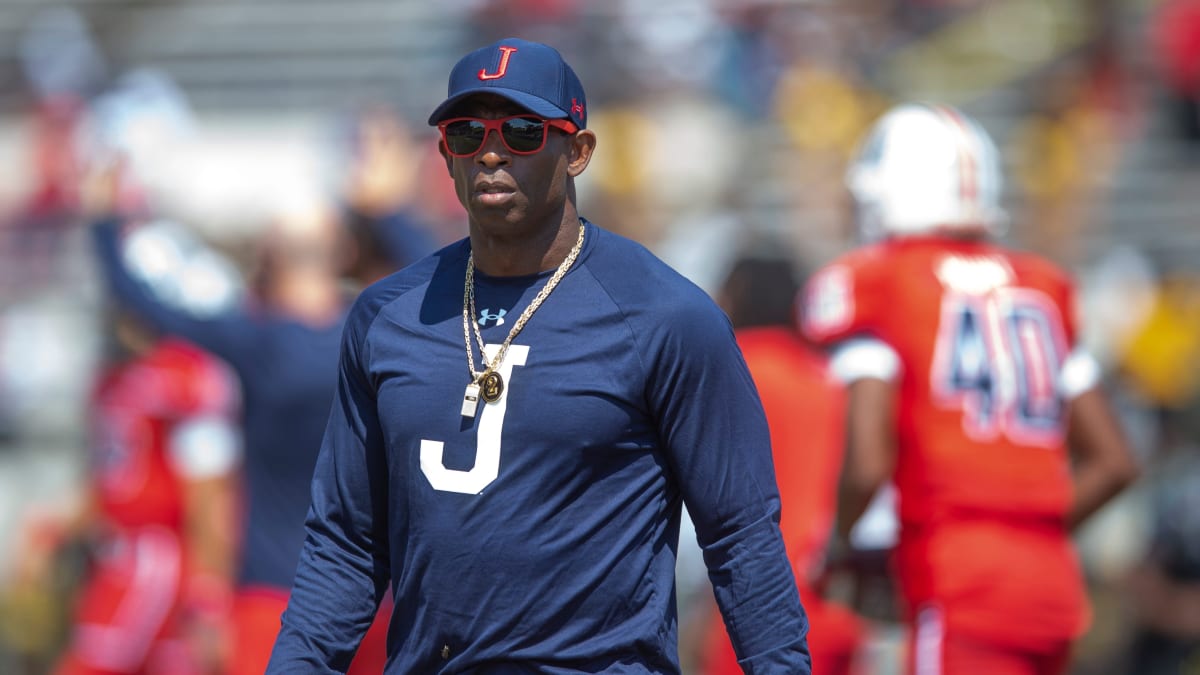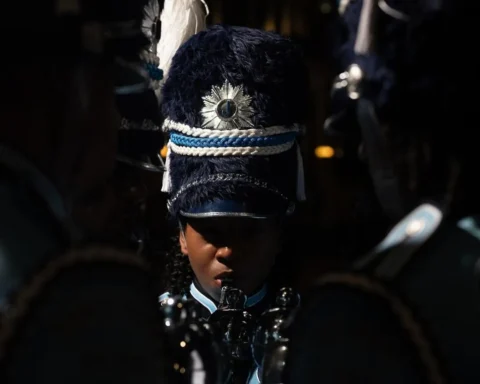After it was announced that football great Deion Sanders was leaving his coaching job at Jackson State University for an opportunity at the University of Colorado on Saturday, he faced criticism on social media. Many are upset that the Black former superstar is leaving a Historically Black University where his leadership could continue to provide a solid foundation for young Black athletes.
But this view is a bit shortsighted. Sanders should not be obligated to stay at an HBCU, and as Colorado’s new head football coach, he has proven he’s true to his profession.
That’s not only because of the success Sanders had in his three years coaching at Jackson State in Jackson, Mississippi, but also because his Colorado deal includes a reported base salary of $5 million a year. (He made $300,000 annually at Jackson State.) This means Sanders is looking out for himself, first and foremost.
And there’s nothing wrong with that. That’s what college football coaches do. They want the best contract they can get from a school where they believe they can win major championships. That’s why many a coach has changed jobs despite telling a new crop of fresh-faced recruits that he’s going to stay.
Sanders proved his ability in his first coaching job by making the Jackson State Tigers the best team among HBCUs. His 27-5 coaching record includes a 12-0 record this year and two consecutive Southwestern Athletic Conference titles.
In his final game at Jackson State, Sanders will lead the Tigers against North Carolina Central University in the Cricket Celebration Bowl on Dec. 17 in Atlanta. The Tigers will seek a victory in what has become known as “the Black national championship game.”
Some might say that Sanders, a Pro Football Hall of Famer and former Major League Baseball player who also excelled for years as a football commentator on network TV, should have been content to stay at Jackson State. Why not build the Tigers into a true dynasty while continuing to sing the praises of HBCUs?
But those critics should realize that Sanders has the same right as any other coach to pursue success at a higher level. That’s why he’s joining Colorado of the Pacific-12 Conference, one of college football’s Power Five conferences (along with the Big Ten, Southeastern Conference, Atlantic Coast Conference and Big 12).
Those conferences have lucrative TV rights deals, such as the Big Ten’s seven-year, $7 billion contracts with NBC, Fox and CBS that begin in July 2023. And teams in these conferences compete in New Year’s Day bowl games and play for major championships on the biggest stages.
Sanders, having nicknamed himself “Coach Prime,” wants a piece of that action. His new goal is to lead the Colorado Buffaloes to a national championship. Not “the Black national championship.” The national championship.
Ambition is available to anyone willing to possess it. In that regard, Sanders is no different from, for example, Nick Saban, the legendary University of Alabama coach with whom Sanders appears in Aflac commercials.
At each previous stop in Saban’s head coaching journey (University of Toledo, Michigan State University, Louisiana State University and the NFL’s Miami Dolphins), he may well have disappointed some players who signed on hoping he would stay. But Saban asserted his right to accept new challenges, and with each success he has been rewarded handsomely. He’s won a record seven national championships (six at Alabama, one at Louisiana State), and he makes more than $11 million a year.
Upward mobility is not exclusive to white coaches. Sanders is showing the same ambition now that he had as a teenager in Fort Myers, Florida. Schools from coast to coast eagerly recruited the preternaturally gifted defensive back and kick returner. He could have gone to an HBCU such as Florida A&M University. The NFL still would have drafted him, as it did Jackson State’s Walter Payton, Mississippi Valley State University’s Jerry Rice and other legends who played at HBCUs.
Instead, Sanders chose Florida State University. One of the bigger schools. He wanted to match his skills against those who play at that level. He wants the same now as a coach.
As for those who wanted to play for Sanders at Jackson State, they can now consider Colorado. His son, Jackson State star quarterback Shedeur Sanders, is expected to do just that and follow his father. As can players beyond Jackson State. Winston Watkins Jr., a highly recruited wide receiver, says he’s going to Colorado after originally selecting Texas A&M. Asked why he made the change, Watkins told football website On3.com: “Deion Sanders. He is the GOAT [greatest of all time] and will always be. He’s an amazing coach and can develop me as a player and person.”





